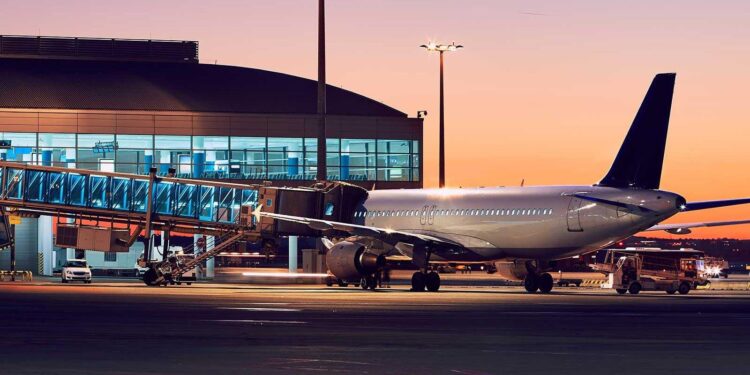Khartoum Airport Capture Alters Sudan’s Conflict Landscape
In a decisive move within Sudan’s ongoing turmoil, the national military has taken control of Khartoum International Airport, displacing the Rapid Support Forces (RSF) from key central districts of the capital. This event represents a crucial turning point in the fierce rivalry between Sudan’s armed factions amid persistent political upheaval and an escalating humanitarian emergency. The airport’s seizure disrupts vital air traffic and commercial activities while underscoring the widening divide between the Sudanese Armed Forces and RSF—a paramilitary group that has expanded its influence since former president Omar al-Bashir was removed from power in 2019.
As this situation develops, both regional stakeholders and global observers are closely evaluating how this strategic gain might influence efforts toward restoring peace and safeguarding civilians caught in the crossfire.
Strategic Advantages Gained by Military Through Airport Control
The recent military operation securing Khartoum Airport significantly enhances government forces’ operational capabilities within central Khartoum. Analysts highlight that controlling this critical infrastructure improves logistical support, troop mobility, and communication channels—factors essential for mounting coordinated offensives against rival groups like the RSF. With their foothold weakened after retreating from such a pivotal location, RSF commanders face pressing tactical challenges requiring swift adaptation.
- Improved Supply Chains: Command over airport facilities streamlines delivery of reinforcements and essential materials to frontline units.
- Heightened Global Scrutiny: The takeover draws intensified attention from international governments and humanitarian agencies monitoring conflict developments.
- Moral Uplift for Government Troops: Securing major infrastructure boosts confidence among soldiers engaged in prolonged urban combat.
- Forced Tactical Reassessment by RSF: Loss of central positions compels paramilitary forces to reconsider their strategies amid shifting battle lines.
| Main Developments | Consequences |
|---|---|
| Sovereignty over Khartoum International Airport | Enhanced logistical reach for government troops across conflict zones |
| RSF Displacement from Central Districts | Diminished strategic presence within capital city core areas |
| Escalation of Urban Warfare Risks | Potential intensification of clashes affecting civilian-populated neighborhoods |
Civilian Impact & Security Challenges Amid Rising Hostilities
The army’s consolidation around Khartoum International Airport brings grave consequences for non-combatants living amidst intensifying violence. As fighting escalates near densely populated zones, civilians confront heightened risks including forced displacement, restricted access to basic necessities, and psychological distress caused by continuous exposure to conflict-related trauma.
- Mass Displacement Risks: Thousands may be compelled to abandon homes due to deteriorating security conditions—exacerbating an already severe refugee crisis with limited shelter options available locally or regionally.
- Deterioration of Essential Services: Damage inflicted on healthcare facilities, food supply chains, water systems, and security infrastructures threatens survival prospects for vulnerable populations throughout affected neighborhoods.
- Mental Health Consequences:Civilians—especially children—face long-lasting psychological effects stemming from sustained violence; studies show increased rates of anxiety disorders post-conflict similar to those documented during Syria’s civil war aftermath. Learn more about trauma interventions here.
| Civilian Protection Strategies Needed Immediately | Description & Objectives |
|---|---|
| Adequate Humanitarian Assistance Delivery |
Rapid deployment of food aid packages, clean water supplies, and medical resources targeting displaced communities. |
| Introduction Of impartial international peacekeepers tasked with monitoring ceasefires, preventing further civilian casualties, and facilitating safe corridors.< / td > < / tr > | |
| Facilitated negotiations involving all armed factions alongside civil society representatives aimed at de-escalating tensions and fostering durable agreements.< / td > < / tr > Urgent Actions Recommended For Global Stakeholders Addressing Sudan CrisisThe recent military success at Khartoum airport places new responsibilities on international actors seeking resolution amid escalating hostilities between government forces and paramilitaries like RSF. It is imperative that foreign governments engage diplomatically with all parties involved while prioritizing protection measures for civilians caught in combat zones. Establishing secure channels enabling unhindered humanitarian aid delivery must remain paramount as millions face urgent needs due to disrupted livelihoods caused by ongoing clashes across urban centers such as Omdurman nearby as well as peripheral regions experiencing spillover effects since early 2024 conflicts intensified according to UN reports released June 2024.* * Bodies like the African Union (AU) alongside United Nations agencies should spearhead inclusive peace dialogues incorporating diverse voices—from political leaders through grassroots organizations—to ensure comprehensive representation reflecting realities on ground conditions faced daily by ordinary citizens enduring hardship during these turbulent times. While economic sanctions could serve as leverage tools against belligerents obstructing peace efforts or violating human rights norms,* they require careful calibration so they do not inadvertently deepen existing humanitarian crises affecting millions dependent on fragile supply networks.* Ultimately only a unified approach combining diplomacy backed by robust humanitarian support mechanisms can pave pathways toward sustainable stability across Sudan’s fractured landscape.* * *Note: According latest UNHCR data (June 2024), over 1 million people have been internally displaced due ongoing fighting.* Conclusion: Navigating Sudan’s Evolving Conflict Landscape Amid UncertaintyThe capture of Khartoum International Airport marks a watershed moment in Sudan’s protracted struggle between its national army and insurgent groups such as the Rapid Support Forces (RSF). By regaining control over critical transport hubs within key urban centers,the government strengthens its foothold but also faces complex challenges ahead regarding governance restoration amidst widespread instability.< /a> Civilian populations remain deeply vulnerable amid continuing hostilities—with many trapped between warring factions struggling for dominance inside densely inhabited districts where access routes are frequently compromised or blocked altogether due ongoing skirmishes reported through mid-2024 updates.* The world watches attentively hoping diplomatic initiatives combined with effective humanitarian interventions will soon alleviate suffering while charting viable paths towards lasting peace throughout this strategically vital nation located at Africa’s crossroads.* Further developments will undoubtedly shape not only internal power dynamics but also regional security considerations given Sudan’s geopolitical significance along Red Sea trade corridors connecting Africa with Middle Eastern markets.* Stay tuned for timely updates as events unfold rapidly during these critical months ahead.* * |














